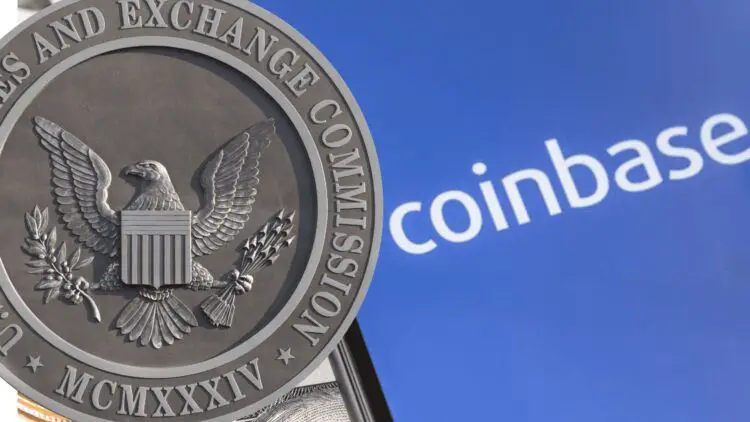The Securities and Exchange Commission, SEC sues Coinbase. As part of an expanded effort to stifle the cryptocurrency business, the United States has leveled criminal charges against the most prominent cryptocurrency trading platform in the country.
According to the Securities and Exchange Commission (SEC), Coinbase violated SEC regulations by acting as a broker, exchange, and clearing agency for investments that are regulated by the SEC while failing to register as required.
According to the regulatory agency, this allowed the company to avoid supervision, which included safeguards against potential conflicts of interest.

Sec sues Coinbase: The regulations are unclear, according to Coinbase
According to Paul Grewal, chief legal officer of Coinbase, “The solution is legislation that permits fair rules for the road to be developed transparently and applied equally.” “While that happens, we’ll carry on doing business as usual.”
A day prior, the SEC filed a lawsuit against Binance, the largest cryptocurrency trading platform in the world, alleging that the company had mishandled user assets, falsely inflated the site’s trading volume, and taken attempts to escape US regulatory oversight.
Authorities have promised to enforce the laws already in place more strictly, claiming that many crypto assets operate similarly to traditional investments that are regulated.

After a significant exchange, FTX, abruptly collapsed last year, many users were unable to access their funds, prompting further scrutiny. Financial watchdogs from ten states, including California and Alabama, filed legal complaints against Coinbase on Tuesday, claiming that the company was conducting business as an unlicensed securities dealer.
Gurbir S. Grewal, head of the SEC’s division of enforcement, stated: “As alleged in our complaint, Coinbase was fully aware of the applicability of the federal securities laws to its business activities, but deliberately refused to follow them.” The implications for the investing public are simply too severe to disobey the regulations because you dislike them or would prefer other ones.
Coinbase share value plunges after SEC files lawsuit
Coinbase, which was founded in 2012, claims to have over 100 million users and daily trading volumes of digital assets like Bitcoin worth billions of dollars.
When the company went public on the stock exchange in 2021 during the height of the crypto mania, it garnered a market value of around $100 billion. But since the collapse in cryptocurrency prices last year, shares in Coinbase have fallen sharply. It is currently only worth about $12 billion.
Upon learning of the lawsuit’s filing in federal court in New York, the company’s shares fell. They closed the day down 12%, and Nansen, a company that monitors cryptocurrency transactions, estimated that users had net removed about $1.3 billion of the site as a result of the lawsuit.

Coinbase had issued a warning in March that the SEC may file a lawsuit against the company. It described the development at the time as unsatisfactory and claimed that despite several attempts to cooperate with the authorities to register, there was no obvious procedure for crypto companies to follow. Additionally, it has threatened to leave the US and go to London or another location.
According to Mr. Grewal’s comments on Tuesday, “The SEC’s reliance on an enforcement-only approach in the absence of clear rules for the digital asset industry is hurting America’s economic competitiveness and companies like Coinbase that have a demonstrated commitment to compliance.”
The top executive of an industry association, the Blockchain Association, said that the SEC had no case and that legislation governing the sector is still being debated in Congress. Mr. Grewal was scheduled to speak in Washington, D.C., at a hearing about drafting rules to regulate specific kinds of digital assets on the same day that the SEC launched its lawsuit against Coinbase.

In prepared remarks for that hearing, Mr. Grewal stated that Coinbase thoroughly examined the assets offered on its platform to see if they may be regarded as securities subject to SEC regulation. The “vast majority” of suggestions, according to him, were turned down and it did not list securities.
“The SEC doesn’t make the law; it only makes accusations,” said Blockchain Association CEO Kristin Smith. “We’re confident the courts will eventually show [SEC chairman Gary] Gensler wrong.”





